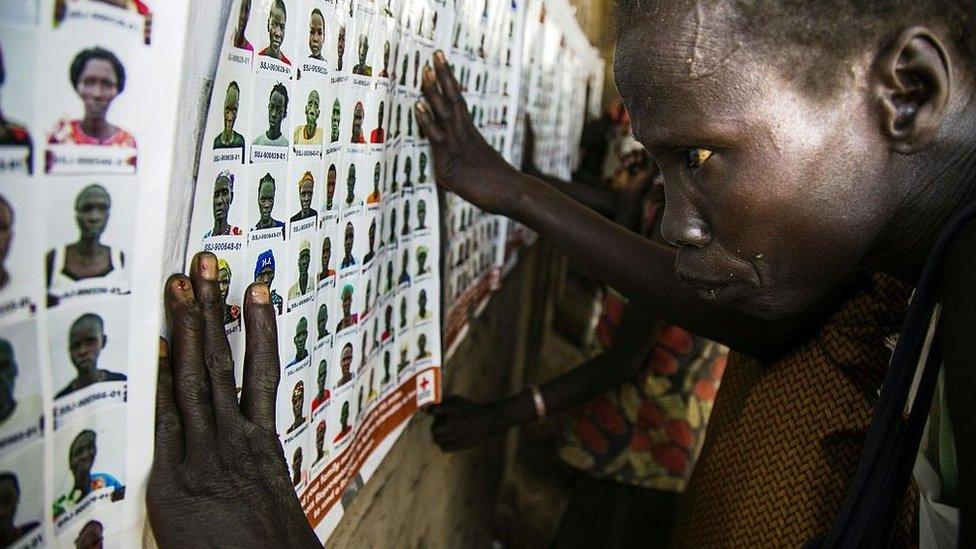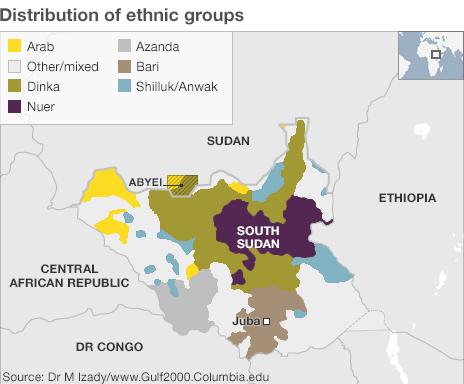South Sudan conflict: UN warns of 'ethnic cleansing'
- Published

Many South Sudanese are trying to find out if their relatives are dead or alive
Ethnic cleansing is taking place in war-torn South Sudan, the country's UN human rights commission has warned.
It says it has observed starvation, the burning of villages and rape being used as weapons of war across the country.
The three-member commission, which was established earlier this year, has just completed a 10-day visit to South Sudan, which has been blighted by conflict for more than three years.
President Salva Kiir has denied that ethnic cleansing is taking place.
Africa Live: Updates on this and other news stories
'I spent days hiding in a swamp'
In a statement released on Thursday, the commission says "the stage is being set for a repeat of what happened in Rwanda" in 1994 - a reference to the killing of 800,000 people, mostly Tutsis and moderate Hutus, in the space of three months.
Yasmin Sooka, the chair of the commission, said that everywhere the team went in South Sudan, it "heard villagers saying they are ready to shed blood to get their land back".

There is no dominant culture in South Sudan - the Dinka and the Nuer are the largest of more than 60 ethnic groups, each with its own language and traditional beliefs, alongside Christianity and Islam
South Sudan's civil war has caused more than 2.2 million people to flee their homes.
It began in 2013, two years after South Sudan became independent, when President Salva Kiir sacked his cabinet and accused Vice-President Riek Machar of instigating a failed coup.
Government and rebels agreed to attend peace talks in 2014, and a deal was signed a year later.
Mr Machar eventually returned from exile to be reinstated as first vice-president of a new unity government under Mr Kiir in April 2016.
However he was again sacked months later after renewed conflict.